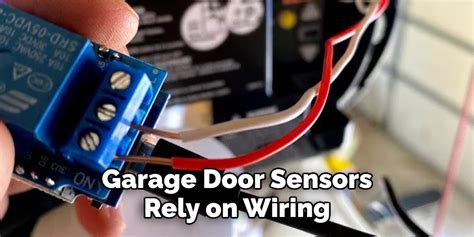Garage Door Sensors: Cleaning and Maintenance Tips
Garage door sensors are crucial for safety, ensuring your door stops automatically if it encounters an obstruction. Regular cleaning and maintenance are essential to keep these vital components functioning correctly and preventing costly repairs or accidents. This comprehensive guide covers everything you need to know about keeping your garage door sensors in top condition.
Why Clean and Maintain Garage Door Sensors?
Neglecting your garage door sensors can lead to several problems, including:
- Malfunctioning sensors: Dust, dirt, and debris can obstruct the infrared beam, causing the sensors to malfunction and fail to detect obstacles. This can result in the door closing on objects or people, leading to potential injury or damage.
- Inconsistent operation: Dirty sensors might lead to inconsistent operation, sometimes working and sometimes not, leaving you uncertain about the safety of your garage door.
- Increased repair costs: Ignoring small issues can lead to larger problems down the line, potentially resulting in expensive repairs or even the need to replace the entire sensor system.
Regular cleaning and maintenance are a simple way to prevent these issues and ensure the safety and longevity of your garage door system.
How Often Should I Clean My Garage Door Sensors?
While the exact frequency depends on your environment and how much dust and debris accumulate, cleaning your garage door sensors at least every three months is recommended. If you live in a particularly dusty or dirty environment, or if you notice any inconsistencies in your garage door operation, more frequent cleaning may be necessary.
How to Clean Garage Door Sensors: A Step-by-Step Guide
Cleaning your garage door sensors is a straightforward process. Here's how:
- Turn off the power: Before you begin, disconnect the power to your garage door opener to prevent accidental operation. This is crucial for safety.
- Gather your supplies: You'll need a soft, lint-free cloth, compressed air (optional), and a mild cleaning solution (a mixture of warm water and dish soap is usually sufficient).
- Inspect the sensors: Carefully examine the sensors for any visible dirt, dust, cobwebs, or debris.
- Clean the lenses: Gently wipe the lenses of the sensors with your damp cloth. Avoid using harsh chemicals or abrasive cleaners, as these can scratch the lens surface and impair their function.
- Remove stubborn dirt: If dirt is particularly stubborn, carefully use a can of compressed air to blow away dust and debris from the sensors and surrounding areas. Avoid excessive force.
- Dry the sensors: Use a clean, dry cloth to wipe off any excess moisture. Ensure the sensors are completely dry before re-engaging the power.
- Test the sensors: Reconnect the power to your garage door opener and test the sensors by placing an object in the path of the beam. The door should stop immediately. If not, check the alignment and refer to your garage door opener manual.
Troubleshooting Common Garage Door Sensor Problems
My garage door doesn't stop when an object is in the way.
This is the most common problem and usually indicates a dirty sensor lens or misalignment. Clean the lenses thoroughly as described above and check the alignment of the sensors – they must be perfectly aligned for the infrared beam to work correctly. Refer to your garage door opener's manual for precise alignment instructions.
My garage door sensors are blinking.
Blinking lights often indicate a problem with the sensors. This could be due to a faulty sensor, a wiring issue, or a problem with the garage door opener itself. Check your owner’s manual for troubleshooting information specific to your garage door opener’s blinking light codes. If you are unable to resolve the issue, contact a qualified garage door technician.
One of my garage door sensors is not working.
If one sensor fails, the entire system will likely malfunction for safety reasons. Try cleaning the sensor, checking for alignment issues, and ensuring the power connection is secure. If the problem persists, replacement of the faulty sensor is probably needed.
Maintaining Your Garage Door Sensors Beyond Cleaning
Beyond regular cleaning, consider these maintenance tips:
- Regular inspections: Regularly inspect the wiring and connections of your garage door sensors for any damage or loose connections.
- Protect from the elements: If your garage door sensors are exposed to the elements, consider installing a protective cover to shield them from rain, snow, and excessive dust.
- Professional maintenance: Schedule annual maintenance with a qualified garage door technician to ensure your entire garage door system, including the sensors, is operating correctly and safely.
By following these cleaning and maintenance tips, you can help ensure your garage door sensors function correctly, providing essential safety for you and your family. Remember, a little preventative maintenance goes a long way in avoiding costly repairs and potential accidents.

